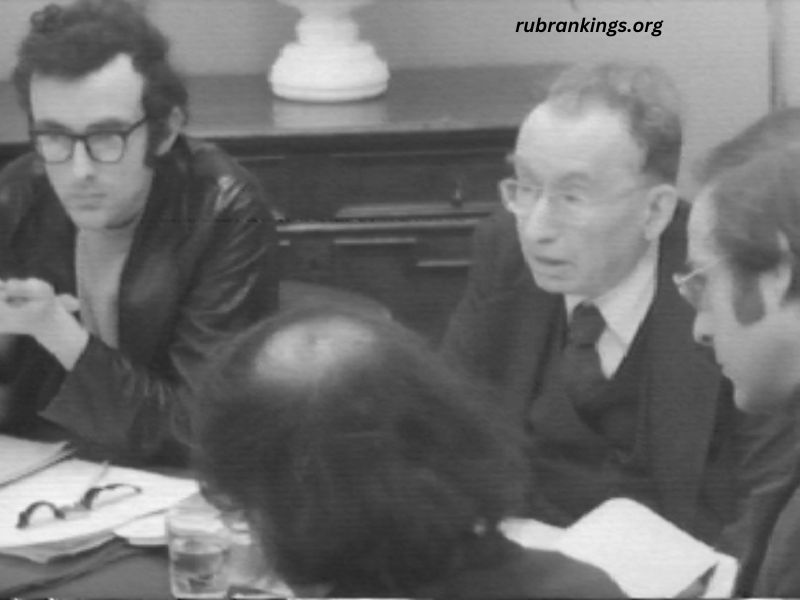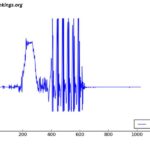Arnaldo Momigliano, a renowned historian and scholar of the ancient world, made significant contributions to the study of history, particularly in relation to ancient Judaism. His work is highly regarded for its clarity, depth, and interdisciplinary approach, making it a vital resource for scholars and readers alike. Among his many scholarly achievements, “Essays on Ancient and Modern Judaism” stands as a key work that explores the historical, philosophical, and cultural intersections between ancient and modern Jewish thought.
In this article, we will explore the themes, significance, and scholarly impact of “Essays on Ancient and Modern Judaism” by Arnaldo Momigliano, examining its exploration of Jewish history, philosophy, and culture in both ancient and modern contexts.
Introduction to Arnaldo Momigliano
Arnaldo Momigliano (1908–1987) was one of the leading historians of his generation, particularly known for his work on ancient history, including his exploration of Jewish history. Born in Italy, Momigliano studied at the University of Turin and became an influential figure in the world of classical studies. His expertise spanned across various fields, including the history of historiography, the study of ancient Rome, and the relationship between different cultures in antiquity.
Momigliano’s intellectual curiosity led him to investigate the intersection between the classical world and Jewish thought. His groundbreaking work provided insights into the ways that Jewish history, religion, and philosophy interacted with the larger world of the ancient Mediterranean. “Essays on Ancient and Modern Judaism” is one of his significant contributions in this area, offering readers an in-depth look at the evolution of Jewish thought over the centuries.
Overview of ‘Essays on Ancient and Modern Judaism’
“Essays on Ancient and Modern Judaism” is a collection of Momigliano’s essays that spans a wide range of topics related to Judaism’s history, philosophy, and its place in the world. The essays are organized to provide a clear view of the connections and contrasts between ancient and modern Jewish thought. Momigliano approaches these themes from an academic standpoint, drawing from his extensive knowledge of ancient texts, history, and Jewish literature.
In the book, Momigliano explores questions regarding the nature of Jewish history, the role of the Jewish diaspora, and the intellectual and theological challenges that Jews faced in both antiquity and modernity. He also delves into the Jewish intellectual tradition, examining the philosophical and theological debates within Judaism, and considers how these debates evolved over time.
Jewish History in the Ancient World
One of the primary themes of Momigliano’s work is the history of Judaism in the ancient world. The ancient Jewish experience was marked by unique historical challenges, including the destruction of the First and Second Temples, the Babylonian exile, and the ongoing tension between the Jewish people and the broader Hellenistic and Roman worlds. Momigliano’s approach to ancient Judaism is deeply rooted in the understanding of these historical contexts and the ways in which they shaped Jewish thought.
Momigliano also addresses the role of the Jewish diaspora in ancient history. As Jews spread throughout the Mediterranean world, they encountered a range of cultural, political, and religious influences that impacted their traditions and beliefs. The tension between preserving Jewish identity and adapting to the cultural contexts of different regions is a central theme in Momigliano’s analysis.
In his essays, Momigliano provides an in-depth analysis of how Jews engaged with the broader world, from the Hellenistic period through the Roman Empire. He examines how Judaism navigated its relationship with Greco-Roman culture, including the emergence of Jewish philosophy and the development of Jewish religious practices that would become foundational for future generations.
Modern Jewish Thought and Identity
While Momigliano’s expertise was rooted in ancient history, his examination of Judaism in the modern era is equally important. “Essays on Ancient and Modern Judaism” highlights the challenges faced by Jews in the modern world, especially in relation to the emergence of new political, philosophical, and religious movements. Momigliano addresses the rise of Jewish emancipation, the impact of the Enlightenment, and the ways in which modernity reshaped Jewish identity and thought.
One of the most significant discussions in Momigliano’s book is the transformation of Jewish thought in the face of modern secularism. As Jews began to encounter Enlightenment ideas, they faced the challenge of reconciling traditional religious practices with the intellectual and philosophical developments of the time. Momigliano investigates how Jewish thinkers responded to these challenges, focusing on key figures and movements that shaped the intellectual landscape of modern Judaism.
Another major focus in Momigliano’s work is the rise of Zionism and the formation of the modern Jewish state. In his essays, he critically examines the ideological foundations of Zionism and its relationship with the broader history of Jewish identity. He explores how the political and cultural movements of the 19th and 20th centuries influenced Jewish thought, and the ways in which these movements reshaped the trajectory of Jewish history.
The Interaction Between Ancient and Modern Judaism
One of the most fascinating aspects of “Essays on Ancient and Modern Judaism” is how Momigliano bridges the gap between ancient and modern Jewish thought. He explores the continuity and transformation of Jewish identity, religion, and philosophy over time, drawing parallels between the struggles of ancient Jews and the challenges faced by modern Jews. This comparative approach allows readers to appreciate how Jewish thought has evolved, and how the ancient past continues to influence modern Jewish life.
Momigliano emphasizes the intellectual continuity between ancient and modern Jewish thinkers. He shows how the concerns of ancient Jewish philosophers and theologians—such as the nature of God, the role of law, and the relationship between Jews and non-Jews—remain relevant to modern Jewish intellectual debates. By connecting ancient texts with modern Jewish thinkers, Momigliano reveals the ways in which the Jewish tradition has adapted and transformed while retaining certain key themes.
Philosophical and Theological Reflections
Momigliano’s essays also engage with the philosophical and theological aspects of Judaism. He examines the intellectual traditions within Judaism, from the biblical texts to the rabbinic period, and considers how these ideas have been interpreted and reinterpreted over the centuries. The relationship between philosophy and theology in Jewish thought is a major theme in his work, as he explores how Jews have used reason and faith to address existential questions about God, the world, and human nature.
In the modern era, Momigliano investigates the challenges posed by secularism and rationalism, and how these movements have influenced Jewish theology. He explores how Jewish thinkers have responded to the rise of scientific and philosophical skepticism, seeking to maintain a balance between tradition and modernity.
Impact and Legacy
“Essays on Ancient and Modern Judaism” has had a lasting impact on the academic study of Judaism, Jewish history, and Jewish philosophy. Momigliano’s work continues to be a vital resource for scholars and students interested in the intellectual history of Judaism. His interdisciplinary approach, which combines history, philosophy, and religious studies, has influenced generations of scholars in the field of Jewish studies.
The book also serves as a key reference for understanding the historical and intellectual development of Judaism. By exploring the ways in which ancient and modern Jewish thought intersect, Momigliano provides readers with a deeper understanding of how Judaism has evolved and adapted to changing historical contexts.
Conclusion
“Essays on Ancient and Modern Judaism” by Arnaldo Momigliano is a significant scholarly work that offers deep insights into the history, philosophy, and culture of Judaism. Through his exploration of both ancient and modern Jewish thought, Momigliano provides a comprehensive view of the evolution of Jewish identity and intellectual traditions. His comparative analysis of ancient and modern Judaism allows readers to appreciate the continuity and transformation of Jewish ideas over time.
The book remains an essential resource for anyone interested in Jewish studies, history, philosophy, and the intellectual traditions of the Jewish people. Through his scholarship, Arnaldo Momigliano has left a lasting legacy in the field, and his essays continue to inspire critical thinking and dialogue about the complex and rich history of Judaism.



